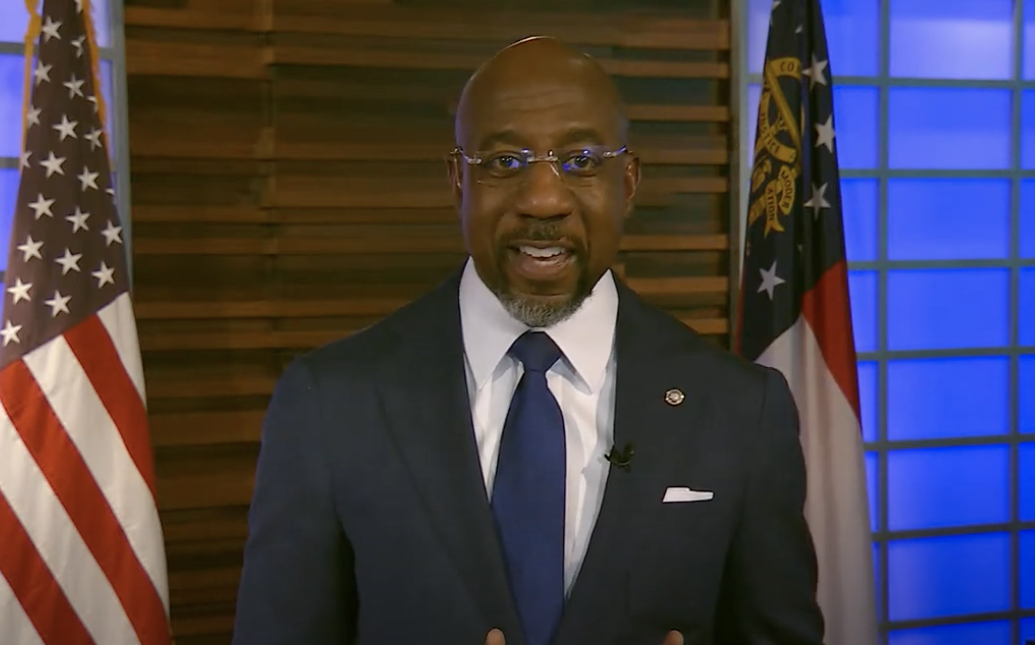Gov. Kemp signs historic legislation delivering tort reform
Published 3:36 pm Monday, April 21, 2025
Gov. Kemp’s Communications Office
Governor Brian P. Kemp, joined by First Lady Marty Kemp, Lieutenant Governor Burt Jones, Speaker Jon Burns, Constitutional Officers, members of the Georgia General Assembly, and state and local leaders signed historic legislation delivering commonsense, meaningful tort reform.
The legislative package, signed into law by the Governor, levels the playing field in our courtrooms, bans hostile foreign powers from taking advantage of consumers and legal proceedings, aims to stabilize insurance costs for businesses and consumers, increases transparency and fairness, and ensures Georgia continues to be the best place to live, work, and raise a family.
“Today is a victory for the people of our state who for too long were suffering the impacts of an out-of-balance legal environment,” said Governor Brian Kemp. “While there was great passion on all sides of this issue, I am grateful for the diligent work of Commissioner John King and his office in studying this issue, the leadership of Lieutenant Governor Burt Jones and Speaker Jon Burns, the unrelenting work of Senate President Pro Tempore John F. Kennedy and House Majority Whip James Burchett, as well as Chairmen Brian Strickland and Rob Leverett for leading a thorough review, and the thoughtful deliberation of our legislative partners in the General Assembly. As a result of this collective effort and outpouring of support from Georgians of all backgrounds, Georgia continues to move in the right direction as we work to stabilize costs and compete for economic opportunities that will create good paying jobs for hardworking Georgians across our state.”
“My position on this important issue has not changed – these are not anti-lawyer or pro-insurance bills, these are pro-Georgia bills,” said Lt. Governor Burt Jones. “From the extensive debate we saw on this issue, it is clear that the environment we are in right now is not playing well consistently and something had to change to level the playing field. I want to thank Governor Brian Kemp and his entire team for making these measures a top priority. These bills ensure that we put Georgia families and consumers first by tackling the hidden costs we have all been paying thanks to Georgia’s current tort laws. These much-needed reforms, which I was proud to support, strike a balance by stabilizing insurance costs for businesses and consumers, while increasing transparency and fairness for all Georgia citizens.”
“Today was certainly a great day to be a Georgian as Governor Kemp signed into law the most comprehensive lawsuit reform legislation our state has seen in nearly two decades,” said House Speaker Jon Burns. “The House was proud to support these measures that return much-needed balance to our state’s courtrooms and deliver financial relief to Georgia’s citizens and businesses facing skyrocketing insurance premiums—all while ensuring we protect the rights of Georgians with legitimate claims.”
“Getting lawsuit reform across the finish line took all of us coming together to deliver this win for Georgia,” said President Pro Tempore Kennedy. “Georgians deserve a balanced civil justice system, not one that incentivizes frivolous lawsuits, leading to higher insurance premiums that burden small businesses, job creators, healthcare providers, and families. I am grateful to Governor Kemp for his trust in me as the Bill Sponsor and his unwavering leadership to get these meaningful pieces of legislation across the finish line.”
“With today’s signing of these important bills by the Governor we bring balance to Georgias civil justice system,” said House Majority Whip Burchett I’m proud of the work of the General Assembly to protect Georgia’s small businesses and job creators from frivolous lawsuits while ensuring that Georgians that are injured are still able to recover for their claims.”
“Georgians have been footing the bill of a legal system that has gone unchecked for far too long,” said Commissioner John King. “By enacting these reforms, we are giving breathing room to consumers and small businesses in every community across our state, while protecting the rights of those are truly hurt. Our achievements today would not have been possible without the steadfast leadership and hard work of Governor Kemp, Lieutenant Governor Jones, Speaker Burns, and members of the General Assembly. Their tireless commitment to meaningful reform has brought long-overdue accountability to a broken system.”
Below are the specific policy areas addressed by the legislation:
Reevaluates the Standard for Negligent Security Liability (“Premises Liability”): Ensures businesses are only liable for what they directly control. The legislation holds property owners accountable when they fail to keep their property safe for their customers and the public, but protects establishments for simply opening their doors and employing hardworking Georgians in communities and neighborhoods that need them.
Truthful Calculation of Medical Damages in Personal Injury Cases (“Truth-in-Damages”): Ensures Georgians injured by negligent actions are made whole and have their costs covered, while protecting consumers from inflated costs being passed on to them. The legislation permits counsel in a jury trial to submit evidence of the medical bills charged by providers, as well as the evidence of what was actually paid by an insurer to satisfy those charges. Jurors may then determine the reasonable value of the plaintiff’s past medical care with full transparency into the billed and paid value of their treatment.
Eliminates the Ability to Arbitrarily Anchor Pain and Suffering Damages to a Jury (“Anchoring”): The new law stops the use of anchoring tactics when presenting damages for pain and suffering to a jury during the closing arguments of a trial. The bill instructs that closing arguments describing damages must be related to actual evidence of the plaintiff’s pain and suffering, which prevents counsel from using an artificial benchmark–like a professional athlete’s salary, the cost of fighter jets, or the number of miles driven by a truck—to describe what a plaintiff should be owed for their injuries.
This bill does NOT place a cap on the amount of money a jury may award. In fact, the Governor’s legislation protects the jury’s decision making from irrelevant and improper arguments from counsel – empowering the jury to decide an award amount based on real evidence in the case.
Bifurcated Trials: Permits a party in a case to move for bifurcation of the trial, so that the defendant is found liable before the jury hears evidence detailing the extent of the plaintiff’s damages. This clarifies important procedure in the courtroom and gives both sides of a case the same opportunity to have their arguments heard.
Allows a Jury to Know Whether the Plaintiff Wore Their Seatbelt (“Admissible Seatbelt Evidence”): Removes the current exclusion from the evidence code that prevents the defendant from showing evidence the plaintiff was not wearing his or her seatbelt in an auto accident. Allowing admission of seatbelt evidence at trial may be used by the defense to mitigate damages, particularly where the plaintiff’s failure to use this essential safety feature results in significantly worse injuries for the plaintiff.
Eliminates Double Recovery of Attorney’s Fees: Closes an misused loophole that allowed plaintiff’s counsel to recover their fees twice for the same lawsuit. Courts will remain able to award attorney fees—but only once.
Eliminates Voluntary Dismissal During Trial: Amends the timeline for voluntary dismissals – putting an end to the practice of plaintiffs dismissing a case just to refile or “cherry pick” a more favorable jurisdiction after the defense has already racked up the cost of preparing and beginning the trial.
Motion to Dismiss Timing Changes: Changes the Georgia Civil Practice Act to allow a defendant to file a motion to dismiss in lieu of an answer – cutting down unnecessary discovery expenses while a motion to dismiss is pending.
Reforming and Bringing Transparency to Third Party Litigation Funding:
First, the legislation bans hostile foreign adversaries from using our judicial system to undermine our vital security and economic interests – protecting Georgia businesses and consumers from foreign actors who may fund litigation to obtain trade secrets or advance their own political interests against the interests of the citizens of this state.
Second, the legislation protects consumers from predatory lenders that want to take advantage of litigants in vulnerable situations by prohibiting litigation funders from having any input into the litigation strategy or from taking the plaintiff’s whole recovery and making sure plaintiffs are aware of their rights.
Third, the bill increases transparency for all parties—the courts, opposing litigants, and the plaintiffs themselves.





